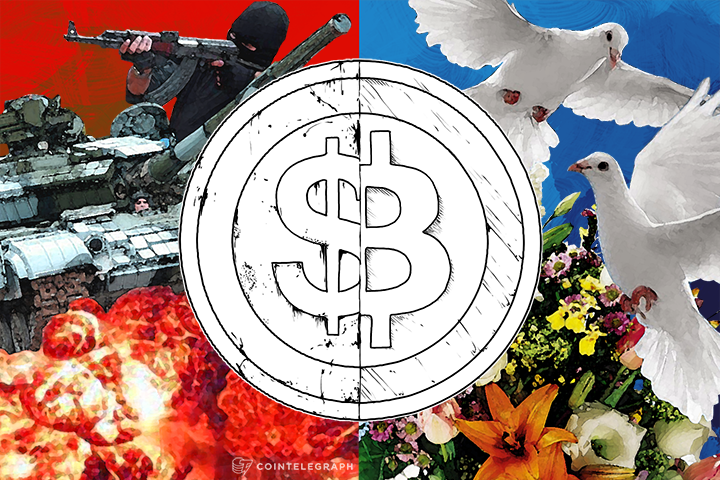The Charlie Hebdo terror and other Paris attacks renew concerns about the ease with which terrorist cells in Europe can get illegal arms. Media outlets have even started to speculate that some of the arms could have been bought with Bitcoin – but reality renders such speculation groundless.
The weapons wielded by gunmen in last week’s Paris terror attacks were AK-47 rifles, the M82 grenade launcher, hand grenades, explosive materials and Tokarev handguns. How did these deadly arms get onto the streets of Paris?
Al Jazeera states as much:
“Many final purchases of illegal arms take place over the Internet… with payment methods in place like bitcoin that make it almost impossible to trace buyers.”
Even the experts quoted by Al Jazeera, however, say that the real issue is a glut of Kalashnikovs in Eastern Europe. “One of the reasons we see a lot of Kalashnikovs on the black market is because Russia has just upgraded the Kalashnikov, and that has created massive stockpiles of the older models,” comments Kathie Lynn Austin, director of the Conflict Awareness Project.

Sources of Cointelegraph also give a more complex picture, where cash, not Bitcoin or other cryptocurrencies, rules the black arms market.
“Financial transactions for illegal arms trafficking vary significantly,” Matt Schroeder of the Small Arms Survey told us. “In certain parts of the world a lot of it is done in cash; in other parts there’s some exchange of commodities such as drugs. … In the same parts of the world money transfers may be used.”
Schroeder added that these transactions remain highly understudied outside of government due to a lack of funding and that, in fact, no meaningful data has yet been collected.
Schroeder cites Bitcoin's supposed volatility as a major deterrent to its being a method of choice for illegal arms traders, but sources closer to the industry bring up more deterrents.
“Even if so-called terrorists had really used an AK-47, then buying weapons of this type with bitcoins is absolutely meaningless,” Roman Nechaev, a former Russian arms dealer who had asked for his real identity not to be revealed, told us via email.
According to Nechaev, bitcoins are responsible for no more than 5 to 7 percent of illegal arms trading. Selling large consignments of arms using Bitcoin is close to impossible.
Nechaev suggested the takedown of Silk Road and the arrests of its organizers and users had already made it clear to the majority that anonymity was no longer an alluring trait of transacting in Bitcoin, especially when it comes to illegal goods and substances. Bitcoin purchases are not safe for those who engage in illegal activities, and such activities can be tracked.
”Eighty percent of transactions are paid for in cash,” says Nechaev. “The sale of large quantities [of illegal arms] is simply impossible due to difficulties with the withdrawal of currency.
“It’s far easier to buy an AK-47 with cash in Eastern Europe and take it to Paris without any difficulty as the EU countries don’t have internal border checkpoints.” He concluded:
“If there is a trend [to trade illegal arms for Bitcoin], it is only among young and less intelligent users of the DarkNet, who believe these networks are anonymous.”
Comments such as these run noticeably against what is becoming a media cliché of Bitcoin being inexorably tied to secrecy, illegitimacy and even evil. Despite the turbulent growth of Bitcoin, its infrastructure may afford a greater opportunity for peace than what has been possible up to now. The relative ease of legitimate transacting does not necessarily give rise to a dark undercurrent, and despite the occasional rhetorical statement of intent, recent atrocities witnessed in Europe and the Middle East do not tarnish the future of Bitcoin.
Did you enjoy this article? You may also be interested in reading these ones:


